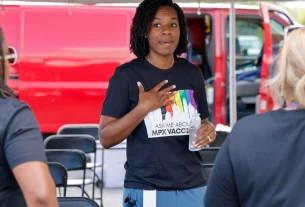[ad_1]
CEDAR RAPIDS, Iowa (KCRG) – Schools are required to report the number of students served, demographic information, and test scores to the Iowa Department of Education. But, the state’s education department doesn’t collect data on many metrics related to mental health.
Suicide is the second leading cause of death, according to the Centers for Disease Control, for people ages 10 to 24 years old in 2018. It’s one of the reasons multiple mental health experts TV9 spoke with emphasized bringing services to schools along with making it easier for children to access mental health treatments.
Heather Doe, who is a spokesperson for the Iowa Department of Education, said the department only collects data when it has legal authority. She said a state law passed in 2020 requires it to collect data on therapeutic classrooms, which are rooms designed for any student with emotional, social or behavioral needs interfering with the student’s ability to learn.
According to previous TV9 reporting from Monday, these therapeutic classrooms are in six school districts after grant funding in 2021. 10 additional districts are planning to create therapeutic classrooms based on additional grant funding released in August.
Data from the Cedar Rapids Community School District published at a previous board meeting shows about 40% of students referred to mental health services aren’t being served during the 2021-2022 school year.
Maggie Hartzler, who is the director of clinical services at Tanager Place, said these numbers are misleading. Hartzler said she tracks this data and the served line doesn’t reflect those who weren’t served through the school, like those who utilize private resources or decline services and prefers people to focus on the demand increasing.
“Those kids are being identified as having a hard time,” Harztler said. “It’s just where do they get the services then.”
Regardless, she said there is a need to hire five more clinicians to serve the district, which currently has 37 clinicians. Hartzler said she’s noticed some staff members are becoming more stressed with the consistent need.
“I think that’d you find some individuals who are really really stressed out and other individuals, who are not,” she said. “And so, I think it depends on the person. But, definitely, the last two years have been very challenging.”
Our KCRG-TV9 i9 Investigative Team requested similar data from three other school districts through a public records request. However, no district was able to present a similar comparison.
A spokesperson for the Iowa Department of Education told TV9 it doesn’t collect data related to referral information for mental health services.
Amy Reynolds, who is a professor in counseling, school and educational psychology at the University of Buffalo, said the lack of information makes it more difficult to understand the need for mental health services across the state and possible solutions. She said aggregate information related to student health is just as important as academic information because it allows schools to further develop students.
“Schools should not just be about academic outcomes, schools should care about the whole child,” Reynolds said. “And if even if they only care about academic outcomes, academic outcomes will be negatively affected by mental health issues.”
Copyright 2022 KCRG. All rights reserved.
[ad_2]
Source link


